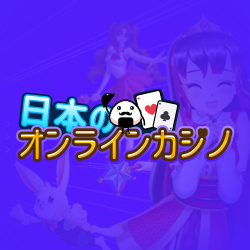Final Fantasy VI Advance Game Boy Advance Review
Publisher: Square Enix Developer: Square Enix Genre: RPG Players: 1
Age Rating: 7+ Other console/handheld formats: N/A
I was a PC child, had my first programming lessons when I was 6 and witnessed the beginning of 1st-person shooters on my grandfathers 286. Consoles were fun times round at friends, but I was denied the world of pads and TV’s in the bedroom. 1994 came I was still without a console but I indulged in the fine offerings that the PC offered that year including The Settlers, Beneath a Steel Sky, UFO: Enemy Unknown, Dark Forces, Magic Carpet, Doom II and last but not least, System Shock…….ah such fine memories.
I’m not sore about it, not having a console I mean. Not in the slightest. I really consider myself a lucky sod to have been in the position to enjoy PC games during that era. However, I have some “missing” chunks of gaming history including the Final Fantasy series but in all honesty, I really couldn’t give a flying monkey. However, after playing the now legendary Final Fantasy VII on the PC, I wished I had. So, when I heard about the remake of Final Fantasy VI on the GBA, I figured it was time to take the blighter by the horns and see if the article delivered. And oh, I’m glad I did.
For those that care, the original was only released to the West in the US of A with a poorly translated script, censorship both in visuals and even the story, and even a change of title, Final Fantasy III due to the previous three not getting a release outside of Japan. Apparently, Nintendo of America’s rules and guidelines played a large part in the original censorship but Ted Woolsey (the original translator) claimed that, “there’s a certain level of playfulness and … sexuality in Japanese games that just doesn’t exist here [in the USA]”. Indeed, there is many a risqué joke in the game which are surprising even now. One of the womanising characters makes a pass at a 10 year old girl in the party before beating himself up for hitting on any woman he meets. Another instance involves one of the more prudish members of your team attracting the attention of a dancer in a bar. Said dancer clearly revels in making the poor guy squirm with inappropriate advances until the situation comes to a climax when she asks if he likes her assets, ‘Humpty and Dumpty’.
Which I think highlights quite nicely that FFVI is not a kiddy game. Sure, the game centres around the concepts of love and courage overcoming evil and looks damn cute to boot, but it’s dashed thoroughly with darkness and madness. The human condition is aptly displayed in precisely formed character development and executed through the main plotline and many side-quests. Although this game is rated PEGI 7+, it’s not at all a light hearted fantasy. There’s no blood or swearing, but there’s plenty of death, grief, and destruction to make for a very dramatic and mature story.
Not that the story is particularly original, but it’s delivered so well that you’ll be hooked, eagerly awaiting every plot twist, new character, conflict and line of dialogue. The game takes place in a world previously destroyed 1, 000 years ago during a bloody war fought with magic. In the aftermath, the origin of magic, the Espers (magical beings) disappeared and with them, magic itself. However, as the centuries have passed, technology has moved into a steampunk era of locomotives, zeppelin-like air-ships and steam powered mechs. Now, a powerful empire is amassing its assets and expanding in an attempt to rule the world. Clearly magic would come in handy for such a task, so Emperor Gestahl decides to revive magic and use it as a source of ultimate power.
So yeah, the story is a little clichéd even by the original releases standards but it’s the enthralling nature of its unfolding that makes it special. This Final Fantasy title differs from its brethren by not focusing on a central hero or heroine, but on a diverse cast of 14 (count ‘em) playable characters each with their own special abilities. You can construct a party of up to four characters giving you a very different experience depending on your choices. There are a number of memorable characters in Final Fantasy VI Advance, but the indisputable star of the show is the villain, Kefka. He looks like a sort of clown, but with a god complex of the malevolent type and is completely insane. He enjoys having a laugh while killing his subordinates, poisoning castles full of people and trying to end the world, that sort of thing. His laugh is easily one of the greatest sound effects in a computer game, ridiculous and creepy all at once.
However, the plot and characters are slave to the battles, the many, many battles you shall play. The 16-bit, turn based roots have taken their toll on the rest of game, but are oddly endearing. It may be antiquated, particularly for people that have never experienced titles of this ilk. Whether you’re exploring a network of caves, traversing the world map, rushing into a burning house to save a child or even plummeting over a towering waterfall, you’ll be frequently pulled into random battles. And I mean a lot, A LOT. Sometimes you’ll be trying to race from one side of a cave to the other, battling almost with every step. This can be infuriating when you just want to get on with the damn plot, not fight the same zombie dragon for the third time. Having said that the battles are not at all bad, it’s only in certain areas it gets a bit much.
However, this game offers some of the most fun you can have with a turn-based system. Few games before, during, or after its time have succeeded quite like FFVI in terms of balance, challenge, and strategy. Careful consideration and planning works in your favour, in particular the assignment of magic to each character is very important to success. The overall effect is an enticing and exciting battle system only let down slightly by its implementation. The GBA conversion also adds four new Espers to the game (Leviathan, Gilgamesh, Cactuar and Final Fantasy VIII’s Diablos), three new spells as well as a new very challenging dungeon and the Soul Shrine levelling area. Plus, unlike the gameplay dated Final Fantasy III there is a quick save option and multiple save slots, elements that work wonders for this title in keeping the experience enjoyable.
Having said that, it’s not all fighting and killing, there is also the usual RPG elements to indulge in as well. Chatting with the local people picking up gossip, solving puzzles, marching into homes hoovering up peoples hard earned items, taking the slightly more honest route with some shopping and generally getting lost. There are also some less conventional sequences that break FFVI out of the fetch-quest rut everybody seems to have fallen into these days. In one scene you have to eat dinner with the Emperor and carefully choose which questions to ask, the hidden reward of special items being at stake. In another you have to memorize lines and put on an impromptu performance as an opera singer while fending off a mischievous octopus who’s trying to disrupt the show. The whole scene is set to the beautiful aria (Aria Di Mezzo Carattere) composed by series resident Nobuo Uematsu and as always delivers the goods providing the scene with both a tender, sombre melody and thundering battle beat. The whole soundtrack, in and of itself, is something of a milestone for those who follow the progression of video game music, providing heavily to the atmosphere and relaying of emotion. This version also benefits massively from the more extensive use of Yoshitaka Amano’s character artwork. Each character’s portrait is placed next to each text box for dialogue allowing for stronger characterisation. The box art and promotion also use his work, this did not exist in the original and is something I appreciate very much, being a big fan of his stuff.
1994 was an amazingly good year on the PC and I still have no regret of my console-less household. I may have missed FFVI first time round, but instead I got to experience it now, any where I went and for that, I thank thee mortal parental units. From the loving crafted sprites depicting the inhabitants of the world to the tactical intrigues of monster bashing, the game delivers to an incredibly high level. It effects you emotionally as any good story should and brings out the joy and sadness in equal measure, with a side of frustration for good measure. Sure, it’s not perfect, but what is? When a game is this rewarding of your time and perseverance you can’t help but love it. FFVI Advance is in my humble opinion, the pinnacle of the JRPG. It’s a pure, refined character free of all other genres, it’s a shining beacon of JRPG excellence. I have no idea what it was like back in 1994, but hot damn it’s good today! Whether this is down to the high level of skill and love applied by the original development team, or a damning statement of a genre that, has in my eyes, only been hybridized, I leave for you to decide.
9/10




